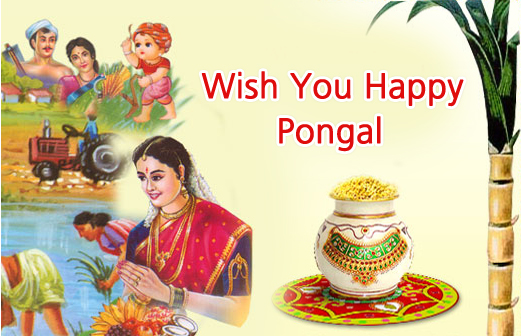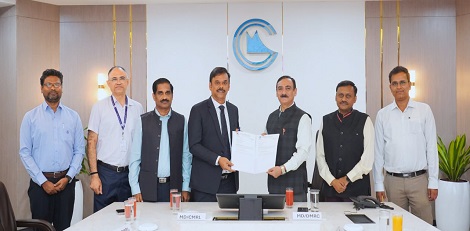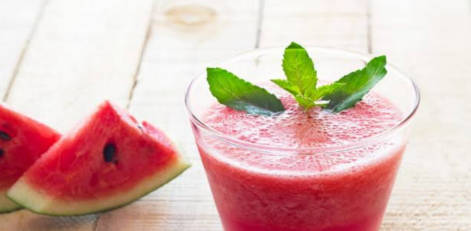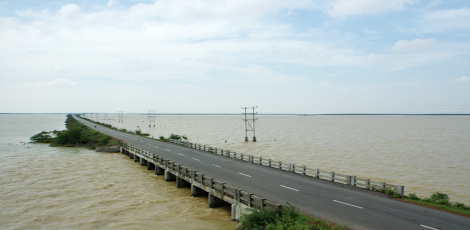Wish You A Happy Pongal

Pongal festival spans over four days period. Each of these days hold a significance of its own
Pongal literally means, "boiling over". This Tamil harvest festival is celebrated with decorated cows, processions and colorful Rangolis. Pongal is actually a sweet porridge made from newly harvested rice and eaten by all, even the animals. Each day of this festival is celebrated more grandly in the villages, while the city folk mainly celebrate on the second day only. It is widely celebrated in Tamil Nadu, Andhra Pradesh and Karnataka.
The festival is celebrated for four days. On, the first day, Bhogi, the old clothes and materials are thrown away and fired, marking the beginning of a new life. The second day, the Pongal day, is celebrated by boiling fresh milk early in the morning and allowing it to boil over the vessel - a tradition that is the literal translation for Pongal (in Tamil).
The third day, Mattu Pongal, is meant to offer thanks to the cows and buffaloes, as they are used to plough the lands. Jallikattu, a violent taming the bull contest, marks this day. On the last day, Kanum Pongal, people go out to picnic.
Although Pongal was originally a festival for the farming community, today all celebrates it. Coinciding with Makara Sankranti and Lohri of the north, it is also called Pongal Sankranti and thus celebrated in some form in various parts of India.
 Lets take a look how each day of this four day Pongal festival hold significance.
Lets take a look how each day of this four day Pongal festival hold significance.







